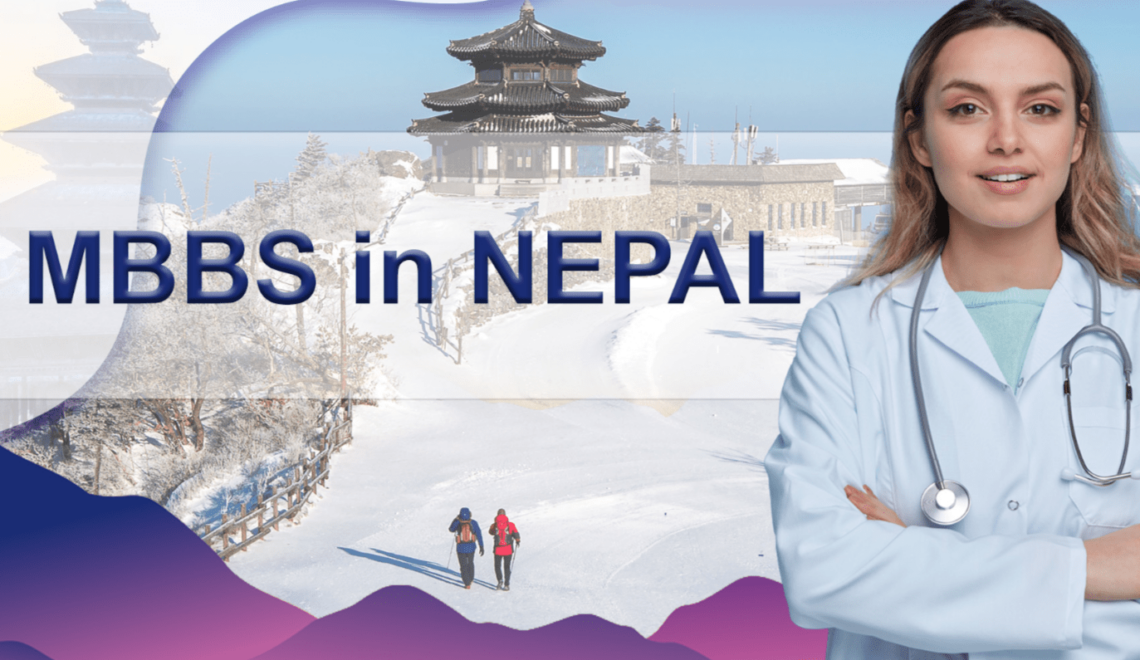
MBBS in Nepal Fees: A Complete Overview for Aspiring Medical Students
Prospective medical students must choose where to pursue an MBBS degree. Nepal has become a popular choice for many Indian students due to its low tuition, high-quality education, and proximity to home. This blog provides essential information about well-known institutions like Kathmandu Medical College and Devdaha Medical College & Research Institute and a comprehensive overview of the costs of MBBS tuition in Nepal.
Why Choose Nepal for MBBS?
Quality Education
The medical schools in Nepal are renowned for their rigorous academic requirements and knowledgeable faculty. To ensure that students receive a solid education that prepares them for global medical practices, the curriculum is designed to meet international standards.
Affordable Fees
The MBBS in Nepal fees is a major draw for students. Nepal provides a cost-effective alternative to private medical schools in India and other nations without sacrificing educational quality.
Proximity and Cultural Similarity
Indian students will find it easier to adjust to Nepal because the two countries share cultural similarities. Additionally, the location’s proximity makes traveling and interacting with loved ones simpler.
MBBS in Nepal Fees: An Overview
The expense of concentrating on MBBS in Nepal can shift depending on the school and its area. The following is a comprehensive breakdown of the costs at two well-known medical schools:
Devdaha Medical College & Research Institute
In Nepal, Devdaha Medical College & Research Institute is a renowned institution that provides cutting-edge facilities and high-quality medical education.
Tuition Fees
or the five and a half years that the MBBS program at Devdaha Medical College lasts, tuition typically ranges from $40,000 to $50,000. In comparison to many Indian private medical schools, this fee is reasonable.
Additional Costs
- Accommodation: The expense of convenience goes from $1,000 to $1,500 each year, contingent upon the lodging of the understudy picks.
- Food: Students can anticipate spending between $600 and $800 annually on food.
- Miscellaneous Expenses: Other costs, such as books, supplies, and personal costs, can easily reach $500 annually.
Kathmandu Medical College
Another popular option for Nepalese students seeking an MBBS degree is Kathmandu Medical College. It is well-known for its outstanding faculty, facilities, and clinical exposure.
Tuition Fees
The MBBS program at Kathmandu Medical College has slightly more expensive tuition, which ranges from $45,000 to $55,000 for the entire course. The college’s advanced facilities and comprehensive curriculum makeup for the higher tuition costs.
Additional Costs
- Accommodation: Lodging costs at Kathmandu Clinical School are comparative, going from $1,000 to $1,500 each year.
- Food: Yearly food costs are around $600 to $800.
- Miscellaneous Expenses: For books, supplies, and other personal costs, students should set aside approximately $500 per year.
Comparative Analysis with Other Countries
India
The cost of earning an MBBS degree in India varies significantly between government and private institutions. The annual tuition at government colleges ranges from $1,000 to $5,000, making them more cost-effective. However, private colleges can charge anywhere from $20,000 to $50,000 annually, significantly more than medical schools in Nepal.
Russia
Another popular destination for MBBS hopefuls is Russia. In Russia, annual tuition costs anywhere from $3,000 to $7,000. Even though Russian tuition is affordable, the cost of living can be higher than in Nepal, so the total costs are comparable.
Ukraine
The annual tuition costs for MBBS programs in Ukraine range from $3,000 to $5,000. Students spend approximately $300 to $500 monthly on housing and other expenses, a moderate cost of living. Studying in Ukraine may be less expensive than in Nepal.
Philippines
The annual tuition for MBBS programs in the Philippines ranges from $3,000 to $6,000. With monthly costs ranging from $300 to $500, living costs are also affordable. The Philippines’ reputation for English-medium instruction is an advantage for many international students.
Key Considerations for Aspiring Students
Accreditation and Recognition
Check with the Medical Council of India (MCI), the National Medical Commission (NMC), and any other relevant international organizations to see if your chosen medical school is accredited. The validity of your degree and your career prospects depend on this recognition.
Admission Process
The affirmation cycle for MBBS in Nepal ordinarily includes a placement test trailed by a meeting. Students must satisfy the eligibility requirements, which include passing high school with a minimum percentage in science.
Language of Instruction
Most of Nepal’s medical schools offer MBBS programs in English, which is advantageous to international students. Guarantee that you are right with the Language of guidance before applying.
Clinical Exposure
Medical education can only be completed with clinical experience. Research the open doors for down-to-earth preparation and temporary positions given by the school. A significant advantage is the extensive clinical exposure provided by Kathmandu Medical College and Devdaha Medical College & Research Institute.
Scholarships and Financial Aid
Students who are deserving receive financial aid and scholarships from some Nepali medical schools. If you want to save money on your education, consider these options.
Conclusion
A compelling combination of high-quality education, affordable tuition, and cultural familiarity make Nepal an appealing destination for aspiring medical students. Incredible MBBS programs are given by Kathmandu Clinical School and Devdaha Clinical School and Exploration Establishment, the two of which element state of the art offices and thorough guidance.
By earning an MBBS in Nepal, students can fulfill their ambitions of becoming doctors without having to pay the exorbitant tuition that is common in many other nations. With the assistance of appropriate research and planning, students can embark on a successful medical career and make well-informed decisions.
